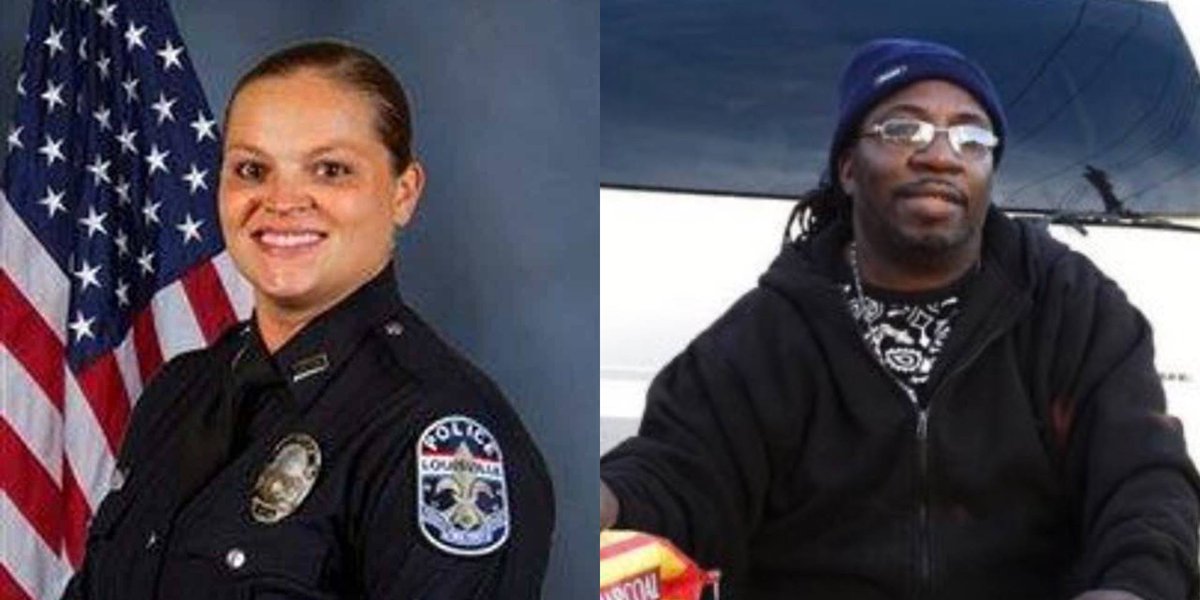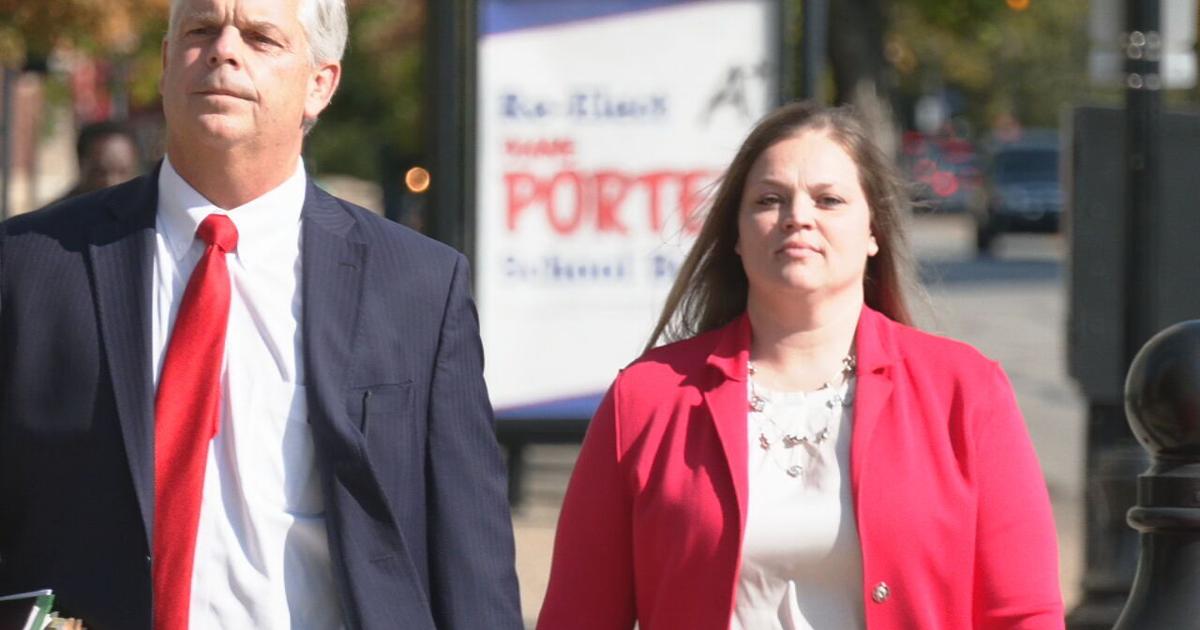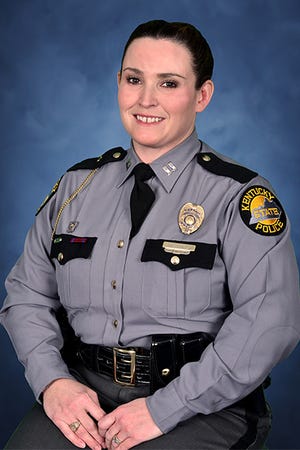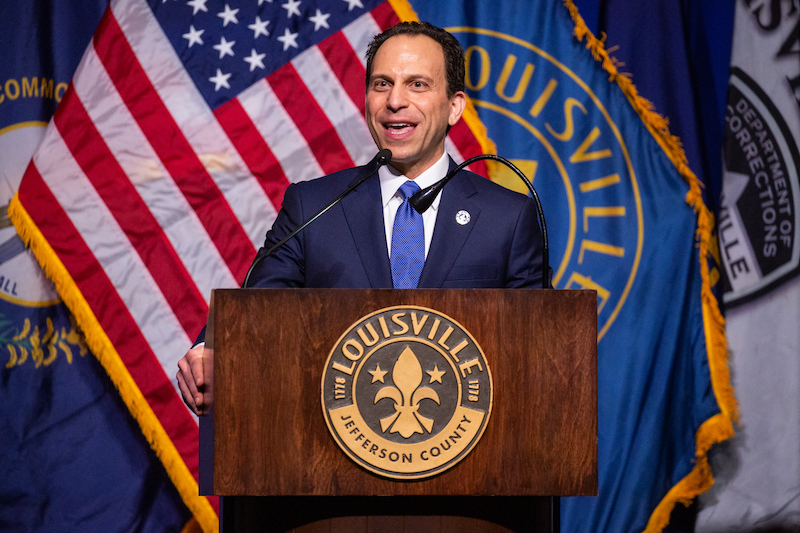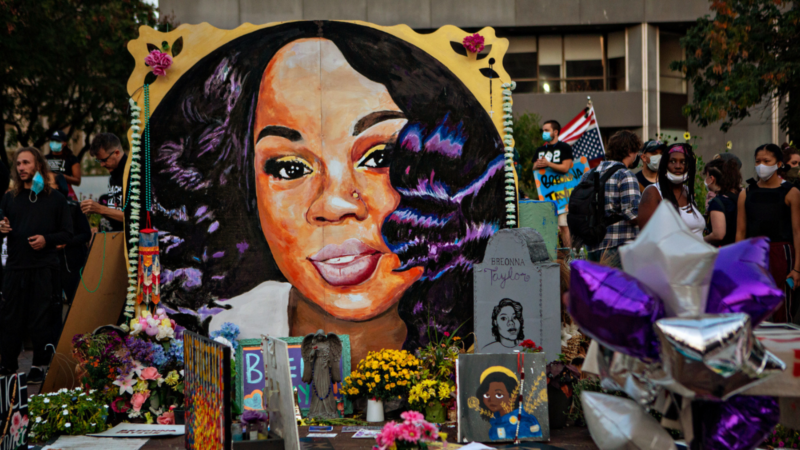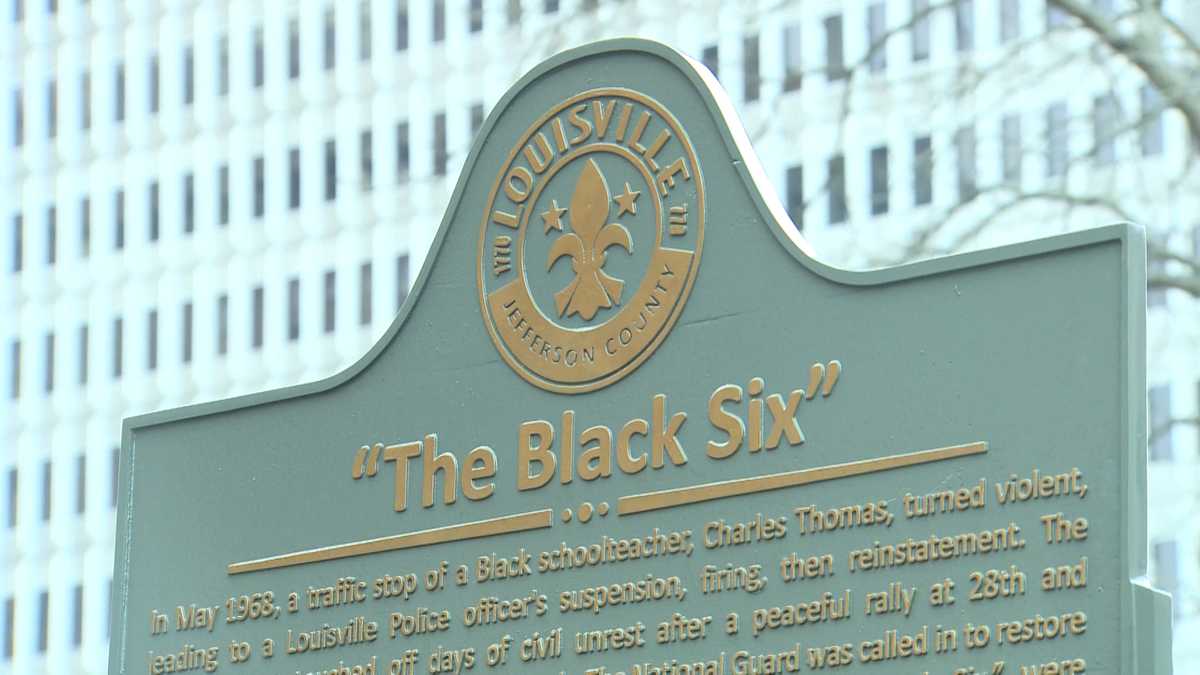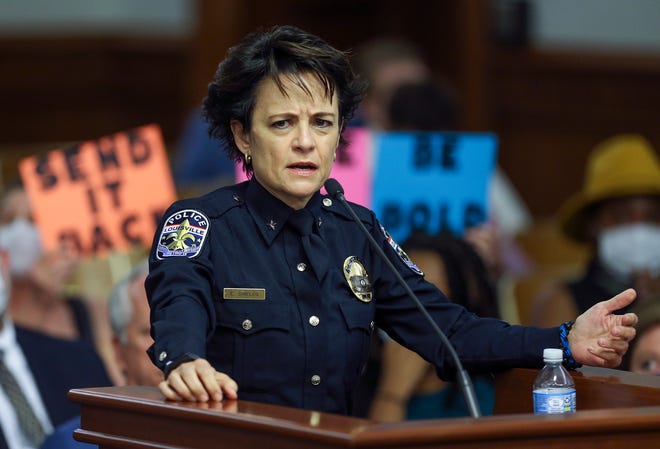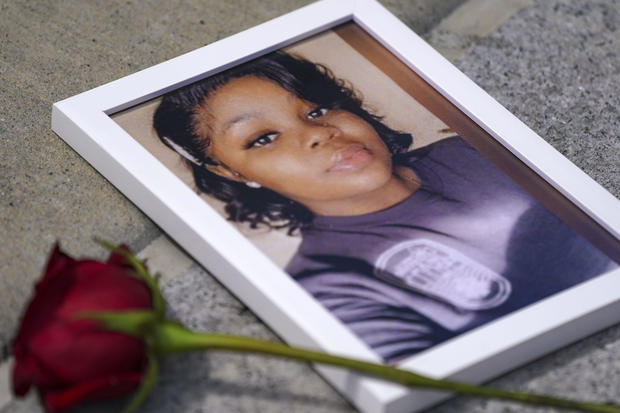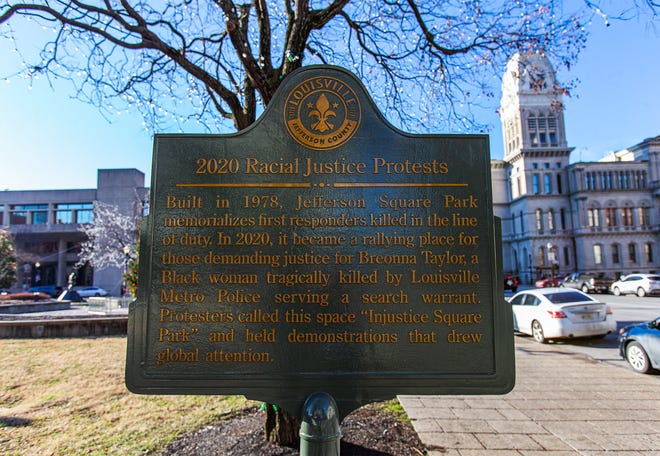Hired in 2021 to lead a broken Louisville Metro Police Department, Chief Erika Shields promised reform, transparency and restoration of confidence in city police.Her tenure came after years of high-profile incidents shrouded in secrecy that eroded public trust, including the sexual abuse of children in the department’s Explorer Scout program and the police killing of Breonna Taylor, an unarmed Black woman who was shot during the execution of a "no-knock" warrant in a failed drug investigation.Though Shields did implement reforms, she has largely failed to rebuild community trust, a Courier Journal review found. And critics say the reforms that were done, happened behind closed doors with little visibility to the public.“We needed her to be a leader,” said Metro Councilmember James Peden, R-23rd, who served on Mayor Greg Fischer’s chief selection committee in 2020 and is vice chair of the council’s public safety committee. “I’m not saying she hasn’t done things behind the scenes. I’m not saying we haven’t had reforms because we have. … We needed some unification between the police force and the public (and) I don’t feel any of that was taken care of.”Peden said the “biggest disappointment” was her lack of communication and interaction with the public.“What I tell you is I’m here to fight for you, I’m here to listen to you and I’m here to help us bring forward the transformation that you all want to see within LMPD so that the department is a model that we can all stand proud of,” Shields said when she was sworn in on Jan. 6, 2021.Louisville Mayor Greg Fischer said Shields was a leader who stepped up when the city really needed her, calling her one of the best police chiefs in America."She came in a time when our police force needed some stability and an experienced hand," Fischer told the Courier Journal. He said she introduced a culture of no-nonsense for bad officer behavior and laid the foundation for the improvements that are underway.Fischer said one of the most significant long-term improvements she made was restructuring the training division to include civilians who help with legal instruction, curriculum development and academic direction. Another has been implementing many of the reform recommendations in the Hillard Heintze report, a top-to-bottom review of the department by an independent firm that Fischer ordered on the heels of Taylor's death.Metro Council President David James, D-6th, a former police officer who will relinquish his position as council president in January, said he would have liked to see Shields regularly update the community on crime, recruitment efforts, homicide numbers and the status of reforms. He said his constituents have been vocal about how she hasn’t taken time to meet with anybody, and police officers feel like she’s absent and isolated herself from the rest of the department.“As far as relating to officers or communicating to the community in the form of helping build back relations or being transparent with the media, she didn’t do any of that,” James said. “She has done a great job fixing the problems that the former chief (Steve Conrad) created as it relates to the administration of the police department.“She was not as transparent as the selection committee had hoped she would be and that she purported to be with the community.”Incoming Mayor Craig Greenberg asked Shields to submit her resignation, effective when he takes office Jan. 2. Deputy Chief Jackie Gwinn-Villaroel, who Shields brought to Louisville from her previous post in Atlanta, will serve as interim chief while the new mayor’s office conducts a national search for a permanent replacement.Shields declined multiple requests to talk to The Courier Journal for this story. She also declined at least a dozen interview requests with the newspaper’s reporters since she took office nearly two years ago.The Courier Journal had a difficult time obtaining details about the reforms Shields put in place, but reviewed past reporting, Shields’ public statements and information sought from the department’s public information arm for this story.Here’s a look at several parts of the department and changes − or lack thereof − since Shields was hired.Officer disciplineShields in February 2021 acknowledged that backlogged complaints against officers and incomplete internal affairs cases were impeding officer discipline and accountability. Those issues, combined with files tracked on paper at the time, rendered the department’s progressive disciplinary system useless, she said.An electronic system intended to provide better information was underway in February 2021, but it’s unclear where that system stands.As chief, Shields is the sole disciplinary authority in the department. Findings from the units that look into police misconduct only make disciplinary recommendations. During her two years with the department, she has fired several officers including:Katie Crews, the officer who, by violating multiple department policies, instigated a situation that led to the fatal shooting of David McAtee, a West End BBQ owner. She was fired in February 2022, roughly 21 months after the incident, and pleaded guilty to one count of deprivation of rights under color of law, a federal misdemeanor charge.Sgt. Kyle Meany, the officer who oversaw the since-disbanded Place-based Investigations unit that secured the warrant to search Breonna Taylor’s apartment. He was fired in August 2022 after a federal indictment alleged he approved the warrant despite knowing the search included false, misleading and out-of-date information. Shields cited the federal charges and a policy violation as grounds for his termination.Christopher Palombi, an LMPD officer who threatened to kill several of his colleagues. Though he was not charged with a crime, a Professional Standards Unit investigation found he violated multiple policies.Donald Johnson, an officer who while working for the Hardin County Sheriff's Office prior to his LMPD employment was involved in a violent arrest. Johnson was seen on video punching a handcuffed man following a traffic stop.Shields also initiated the firing of Kelly Goodlett, an officer who pleaded guilty to a federal charge related to falsifying information in the Taylor warrant, but she retired instead.Now-former LMPD officer Harry Seeders remained on the force for 16 months after a domestic violence incident with his girlfriend following an argument at his home that "turned physical." He was charged with two counts of fourth-degree assault. At the time he was already on administrative leave for fatally shooting a man during a Portland traffic stop in November 2020. Seeders was charged again in October 2022 for distributing nude photos of a woman without her consent and quit not long after his second arrest.There have also been instances when Shields condemned officer behavior but didn’t formally discipline them.Aaron Ambers, the officer who was caught on video punching Denorver "Dee" Garrett in the face during a protest, was exonerated after a year-long internal investigation. His supervisors were required to attend formal training on de-escalation but were also exonerated.In correspondence relating to the investigation, Shields condemned Ambers' actions, saying he could have made better decisions but he complied with all policies in place at the time of the incident. She said the supervisory staff "neglected to apply critical teachings" in de-escalation.Officer Matthew Schrenger was investigated for marching in uniform with protesters outside of a downtown abortion clinic in 2021 and later exonerated by Shields, despite writing in a letter that "there is no question" he participated in a protest in uniform. She said she later revised a department policy to bar officers from participating in religious or political controversies while in uniform or in their patrol car.The city later paid Schrenger $75,000 to settle a lawsuit alleging his right to free speech was violated.Domestic violenceShields cut five detectives from the city’s domestic violence unit in the spring of 2021, a unit already struggling with its caseload and short two officers at the time. In 2022, there was a 60% increase in domestic violence-related homicides.She made the reductions despite a rising number of domestic violence incidents and warnings from officials including County Attorney Mike O’Connell about the detrimental impact it would have.Spokeswoman Angela Ingram told The Courier Journal in September that the changes were made to curb the “unprecedented” number of homicides in 2021. In 2020, the 13-officer unit was assigned 4,600 cases; in 2021, 5,400 cases were assigned to the unit's eight officers and two civilian investigators; in 2022 the unit was assigned more than 4,000 cases through September."This decision is likely to have a detrimental effect on our whole community, and especially to DV victims," warned Dorislee Gilbert, head of the Mary Byron Project, a Louisville-based organization that seeks to end intimate partner violence.Accountability and Improvement BureauShields, in an op-ed The Courier Journal published in September 2022, mentioned creation of the department’s Accountability and Improvement Bureau, which she said focuses on reforms, audits and training. Four new areas that are part of the bureau include the audit team, the performance review board, a wellness unit and the early intervention system.AuditsThe audit team, comprised of a sergeant and five civilian auditors, assesses officer performance in areas like domestic violence responses, use of force investigations along with stops, searches and arrests. The team is in the process of conducting its first audit on compliance with body-worn cameras, according to Lt. Andy Rodman, commander of the department’s performance section.With the domestic violence response audit, for example, the team will select a random representative sample of cases and determine whether officers filled out the correct paperwork, whether they followed all applicable state laws and whether they canvassed the scene for evidence, Rodman said.Once the audit for a particular topic is established, the data will be sent to commanders in each division monthly. It’s a way for the department to identify trends, deficiencies, training gaps, equipment needs or necessary policy revisions.Performance Review BoardThe performance review board will look at “significant events” like officer shootings and make recommendations related to policies, training, tactics, supervision, organizational structure, technology and equipment that would help improve officer and supervisor performance, Rodman said. The board can’t recommend discipline but is obligated to refer any potential criminal misconduct to the Special Investigations Division.Of the 12 voting members, seven will be appointed from various police divisions and five will be positional. In addition, there will be three regular nonvoting experts along with expert witnesses who will serve on a case-by-case basis.The policy that establishes the board and details how it will function is completed but the members haven’t been chosen. Rodman hopes they’ll start reviewing incidents early in 2023.WellnessShields created the wellness unit in 2021 to focus on the physical, mental, spiritual, financial and social health of officers, said unit head Lt. Joel Lopez.This year, Lopez hopes to create lists of resources for officers seeking counseling or mental health help, establish programs and events that support wellness and promote healthy principles like sleeping, eating healthy and having a primary care physician.Lopez said wellness can have a huge impact on officer performance and behavior.“What we see is officers who (for example) are physically in shape and mentally sound but their finances are a mess and their girlfriends are toxic. Over time that’s going to affect their wellness altogether and then they’re going to be poor officers on the street," Lopez said.A full-time department chaplain was hired in November and part-time volunteer chaplains were increased from five to 17 since Shields took over. The clergy help de-escalate critical incidents in the community and the plan is to try and make the clergy available to support officers, Lopez said.Early intervention systemFor more than 11 years, the department has written into its policies the framework for a system meant to flag officers who could be at risk for misconduct or in need of additional support. It wasn’t until the spring of 2022 that the program was finally rolled out.Promised as part of the 2020 settlement agreement with Taylor’s family, the early intervention system was created to help officers who might need more training or mental health support. The system tracks in real-time firearms discharges, use of force reports, vehicle pursuits or disciplinary incidents not handled by the Professional Standards Unit along with records deviations from the statistics of other officers with similar jobs in their division. The commanding officer of someone flagged for an intervention meeting can determine whether the officer needs re-training or guidance. The purpose is to open a line of communication between officers and commanders to understand why incidents might be occurring, Lopez said.The system is part of the wellness unit.Traffic stopsDespite numerous reports since 2000 documenting the disproportionate rate at which Black drivers are pulled over and searched by LMPD compared to their white counterparts, the department hasn’t made any changes.Even though there were fewer stops amid the COVID-19 pandemic, the rate of stops involving Black drivers hasn’t wavered.A September 2022 review of data from 2020 to 2022 found 33% of drivers pulled over and 53% of drivers searched were Black. About 20% of the city’s population is Black, according to the 2020 Census. Black men make up 9% of the city’s population but account for 45% of police searches.The results from a 2019 review were similar, and the Heintze report also found racial disparities in arrest, traffic stop and field contact data.Diversity and equityThe Heintze report found that LMPD lacks diversity within the department and that community and officer perception indicates the department is generally unwelcoming of Black officers.In 2021, Shields said that 12% of LMPD staff members, 6% of sergeants and 10% of lieutenants were Black.During a May 2022 budget hearing, Shields said the department isn’t making the “inroads” it would like to hire Black officers. She said at that time about 15% of LMPD officers and recruits are Black.“I know we’re not where we need to be,” she said, adding that so few Black applicants and commanders it's hard to make promotions. Shields hired an equity and diversity manager, Minerva Virola.Breonna Taylor reformsThough the $12 million settlement between the city and Breonna Taylor’s family predates Shields, at least two of the reforms meant to improve relations between officers and the community remain unused under her tenure.The settlement offers housing credits for officers who choose to live in certain low-income census tracts in the city, but as of this month, LMPD said no officers have taken advantage of the opportunity.Another reform in the settlement encourages officers to perform at least two paid hours a week of community service. A spokeswoman for LMPD said the department is in the process of determining “the most efficient way” to track volunteer work of officers who regularly engage in community-based voluntary activities.In September, the department in a statement said allowing officers to volunteer during their regular work hours would result in coverage gaps because of understaffing.Impediments to the civilian review and accountability boardThe Police Civilian Review and Accountability Board and inspector general’s office were created following Taylor’s death to hold LMPD accountable through independent investigations and policy recommendations.Though the board and its investigators have been operating since June, they’re being denied access by the department to unredacted information related to police incidents. In addition, officers are not participating in interviews, despite a clause in the governing ordinance requiring cooperation.Inspector General Edward Harness told The Courier Journal in November that a memorandum of understanding was pending approval by Kentucky State Police, the agency responsible for the type of information LMPD claims is protected. Another pending agreement between LMPD and the office would clarify terms under which officers would cooperate in non-criminal investigations.Harness expected approval on both agreements in November, but last week said there’s been no change.Signal sidearmFischer fired then-LMPD Chief Steve Conrad in 2020 after finding none of the officers involved in the McAtee shooting had their body cameras turned on. Fischer called the incident an “institutional failure” and mandated body cameras be worn at all times.LMPD purchased a holster, the Axon Signal Sidearm, for all officers that would automatically turn on an officer’s body-worn camera when the gun is removed. The equipment is expected to be fully deployed by February 2023.Systemic changeFischer said a lot of Shields' reforms, especially related to the Heintze report, laid the foundation for what the Department of Justice will likely recommend when the pattern or practice investigation is complete. He said the Accountability and Improvement Bureau will be the vehicle for implementing some of those changes.Brian Higgins, a former New Jersey police chief and an adjunct professor at the John Jay College of Criminal Justice in New York City, said two years isn't enough time for real, systemic change. He said it's enough time to start "turning the ship," though.Higgins said agencies that are successful often break down the reforms and set both shorter- and longer-term goals.“If you bring in another chief who is going to continue the same measures this chief was doing, what’s the sense? What’s the purpose? If you’re going to go in another direction again, now you’re really affecting the long-term culture of the agency," Higgins said. "It’s never good for an agency to have constant change."Higgins said the leaders of the best departments have a relationship with the community. Community buy-in is important when implementing policy changes. It's not uncommon for a city with a strong mayoral position to limit what the chief can say, he said."At the end of the day the chief is just an employee," he said.

